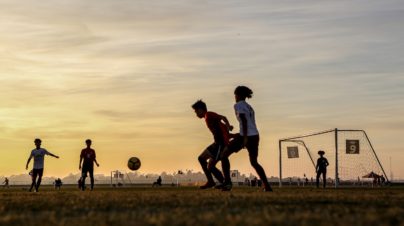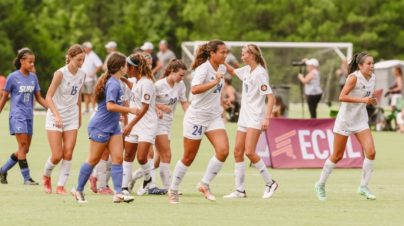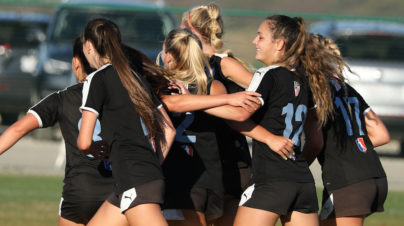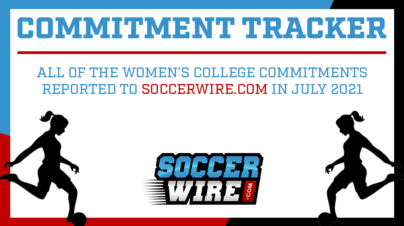The must-knows about signing a National Letter of Intent (NLI) for college soccer
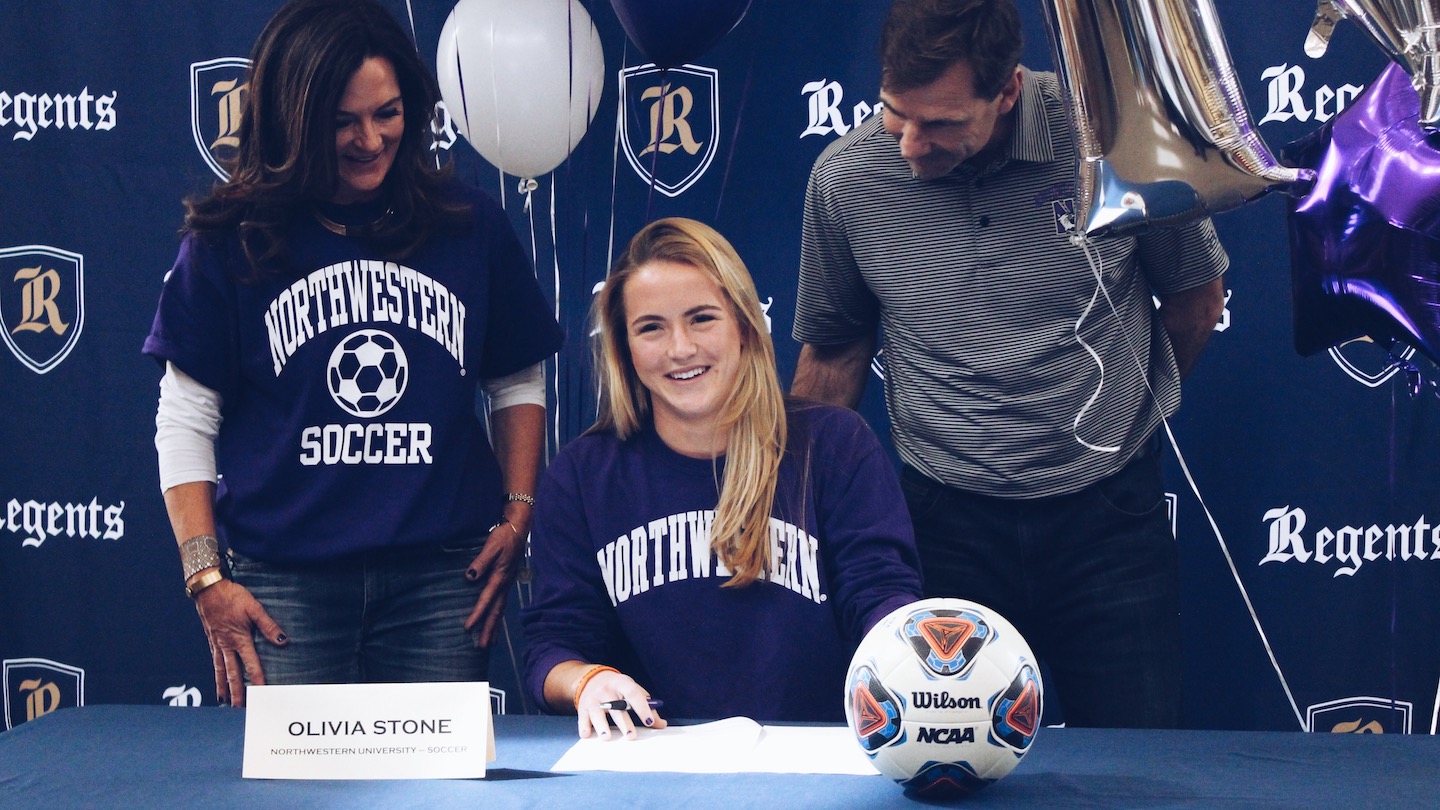
By Adam Schwager
SoccerWire Staff Writer
For youth soccer players attempting to play in college, signing a National Letter of Intent (NLI) marks the conclusion of their recruiting process. While some players may verbally commit months or years prior, signing an NLI makes the decision binding, and officially closes recruitment for that player.
While many understand that signing an NLI binds a recruit to their future school, it’s important for potential recruits (and their parents) to fully understand the terms of signing a National Letter of Intent and how those terms are enforced.
What is a National Letter of Intent?
Founded in 1964, the National Letter of Intent program was formed by seven conferences along with eight independent institutions to help add security to the recruiting process. Encompassing 652 Division I and Division II institutions today, the NLI program is now run by the NCAA while being oversought by the Collegiate Commissioners Association.
Aside from preventing all other NLI member schools from contacting an athlete, signing a NLI binds the academic institution to give at least one academic year (two semesters or three quarters) of athletic financial aid. In exchange for the guarantee from the school, the signed athlete binds themselves to attending said institution full-time for at least one academic year. The benefits for both sides are immense, as NLIs help institutions know that their recruits will follow through with attending their school, while the athlete locks in their amount of financial aid for at least the first year.
While the timetable varies from sport to sport, both men’s and women’s soccer players are eligible to sign their National Letter of Intent in early November of their senior year (November 10th, 2021 for those signing this upcoming year). For soccer, the signing period stays open until August 1 of the following year, just over a month before the start of the upcoming season. All NLIs must be submitted remotely and never hand-delivered by any representative of the institution. These days, most NLIs are sent to families and sent back to schools via email.
How binding is a signed NLI?
Recruits should be very sure of their decision before signing an NLI agreement. This includes making sure the amount of aid offered in the contract matches the amount that the student and their family feels comfortable with. Due to the binding financial aspects of the NLI, parents/guardians are required to co-sign an NLI for all prospective athletes under the age of 21.
Once an NLI is signed and filed with the institution’s conference office, the NLI binds the player and institution to the contract with very limited exceptions. Firstly, the NLI becomes nullified if the signing institution does not admit the student despite the student completing all their application materials. Simple failure to apply for the institution does not count as an admission rejection, therefore student-athletes will still be held to the NLI. An NLI is also voided if the student is no longer eligible to compete in the NCAA or for their institution—for reasons academic or otherwise.
If a student signs an NLI but decides not to attend college that year, the institution has the option to provide the student with the same amount of aid the following year, but is not required to. In the event the institution honors the initial NLI, the NLI remains valid, however if the institution revokes the athletic financial aid, the student-athlete is free to sign with any other institution of their choosing. In the case of NCAA/conference recruiting rules violations, institutions must notify athletes that they have the decision to keep the NLI valid or have it declared null and void.
While NLIs are also considered void if the institution offering the NLI discontinues the sport in question, coaching changes do not void an NLI agreement. When you are binding yourself to an institution via an NLI, you are not binding yourself to a specific coach.
When you sign an NLI, you are also choosing to end your recruitment process, and therefore all your conversations with officials from institutions that you did not sign with. If any coach outside of the institution you signed with contacts you, it is your responsibility to tell the coach you’ve signed an NLI with another institution and end the conversation there. Any contact in excess of an exchange of a greeting is not permitted regardless of the conversation.
NLIs have a statute of limitations of four years, effectively making the contract last for either four years or the completion of the contract otherwise. A completed contract includes fulfilling the one-year at the institution you signed the NLI with or graduating from a two-year college while under the provisions of an NLI.
What are the punishments for breaking an NLI?
If you fail to enroll in the institution you signed an NLI with and enroll in another institution with a participating NLI program, you will not be allowed to compete in intercollegiate athletics until completing a full academic year at the institution you enrolled in. Additionally, you forfeit the year of eligibility you missed while failing to honor your NLI agreement, effectively giving yourself three years of eligibility if you violate the NLI entering your true freshman year.
How to get out of an NLI
In an ideal world, you should only sign an NLI if you’re absolutely committed to attending the institution the upcoming fall. However, there are always certain circumstances that may come up and for those there is an avenue to ask your institution for a full NLI release.
At NationalLetter.org, you can find complete information on how to ask the institution you’ve signed with to release you. If not granted release by the institution, you would have the opportunity to appeal to the NLI committee.
National Letter of Intent Benefits
At the end of the day, the National Letter of Intent program exists to help incoming college athletes and their families have a sense of security entering college. While you want to make sure you’re fully committed to the school of your choice, signing a NLI is a step you should take eventually (if offered) to guarantee the school honors their commitment to you. To get more information directly from the source, check out the National Letter of Intent website, which can hopefully answer any lingering questions you may have.
SOCCERWIRE MARKETPLACE
- Dana Cup Hjørring 2025
- Join Official Elite Summer Soccer Camps with Europe’s Top Pro Clubs!
- Loudoun College Showcase 2025: Earlybird Registration is OPEN NOW
- GET SEEN AT OUR COLLEGE ID CAMP!
- Maryland United College Showcase Series 2025
- The St. James Winter Futsal Program
- Chelsea FC 3v3 Youth Winter Cup
- International Tryout in Spain
- ECNL Girls Goalkeepers Wanted!
- Adidas College Showcase 2024

